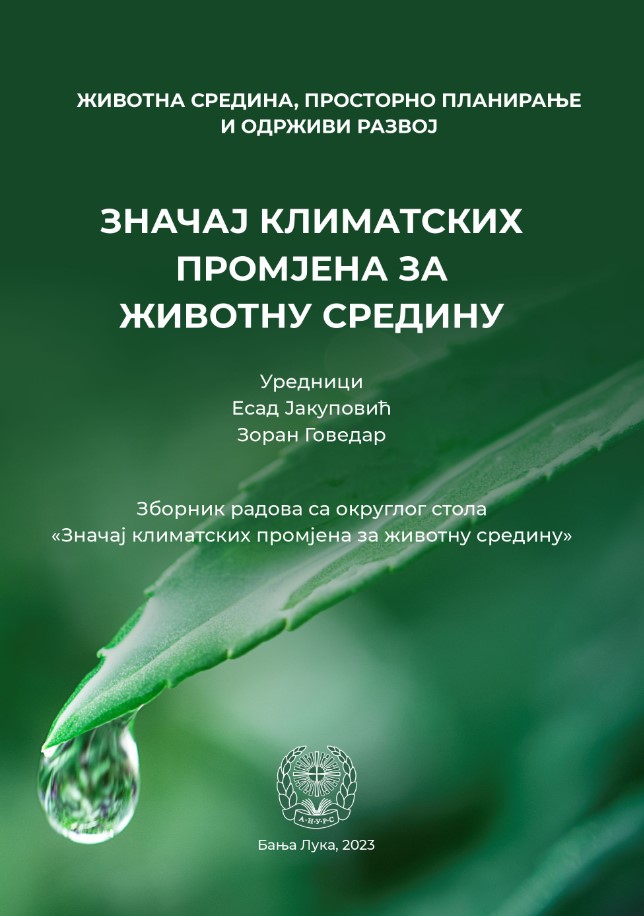Biochemical response of maize plants to short-term flooding
DOI:
https://doi.org/10.7251/ZSPPOR2301017TKeywords:
hybrids ZP 555 and ZP 606, antioxidant metabolism, lipid peroxidation, hypoxia, reactive oxygen speciesAbstract
In recent decades in Bosnia and Herzegovina, a flood has been one of the main causes of crop yield loss. On the other hand, the percentage of maize production in the total crops is 71%. Therefore, examining the impact of floods on maize plants is extremely important for understanding the mechanisms of adaptive responses and the selection of resistant hybrids. Although, flood leadsto anaerobic conditions for plant growth, it induces the formation of reactive oxygen species (ROS) in plant cells. ROS oxidatively damage cellular macromolecules and may ultimately lead to cell death. In order to protect themselves from ROS, plants activate antioxidant metabolism (enzymatic antioxidants: superoxide dismutase, (SOD), catalase (CAT) and Class III peroxidases (POX) and non-enzymatic antioxidants such as phenolic compounds (PhOH)). The aim of our work was to examine the biochemical response of two maize hybrids (ZP 555 and ZP 606) to flood induced by the partial submergence of plants for 72 h. Changes in oxidative (H2 O2 and malondialdehyde (MDA)) parameters and antioxidants (SOD, CAT, POX and PhOH) were monitored during the duration of the flood, as well as differences in the response of hybrids. The results showed that changes in the concentration of oxidative parameters were insignificant between treated and control plants in both hybrids, indicating a strong response of antioxidant metabolism. However, differences were observed in the antioxidant metabolism response of hybrids: ZP 606 had a stronger enzymatic response, while hybrid ZP 555 had a stronger non-enzymatic response. Even though our results showed that both hybrids tolerate short-term flooding, in order to characterize them as flood-tolerant hybrids, additional research is needed that includes different developmentalstages of plants and different duration of flooding.

